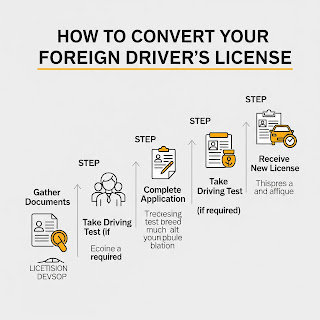Understanding Your Rights Under Saudi Labor Law: Contract Termination, Iqama Sponsorship & Dispute Resolution
Understanding Your Rights Under Saudi Labor Law: Contract Termination, Iqama Sponsorship & Dispute Resolution (2025 Guide)
Meta Description: Learn your rights as an expat employee under Saudi Labor Law, including rules for contract termination, Iqama sponsorship responsibilities, and labor dispute resolution.
Labels: Saudi Labor Law, Iqama Sponsorship, Employee Rights KSA, Expats in Saudi Arabia, Contract Termination, Legal Help KSA
Why Understanding Saudi Labor Law Is Essential for Expats
Saudi Arabia has taken great strides in improving labor conditions and protecting the rights of workers, including expats. Whether you're new to the Kingdom or renewing your contract, it's vital to understand the legal framework that governs employment, termination, sponsorship, and dispute handling. This guide walks you through your basic rights under Saudi Labor Law in 2025.
1. Employment Contracts: Key Legal Protections
- All employment relationships in Saudi Arabia must be based on a written contract in Arabic (a translated copy can be added for expats).
- The contract should state job title, duties, salary, working hours, leave entitlements, and notice periods.
- Fixed-term contracts automatically renew if not explicitly terminated at the end of the term.
Tip: Always request a copy of your contract and keep a digital backup for your records.
2. Contract Termination Rules
Saudi labor law outlines clear rules for termination by either employer or employee:
Termination by Employer:
- Must be based on a valid reason (e.g. poor performance, business restructuring, misconduct).
- Requires a 60-day written notice for unlimited contracts (30 days if probationary).
- End-of-service benefits must be paid, unless dismissed for a serious violation (Article 80).
Termination by Employee:
- Must provide a written resignation notice (30-60 days depending on contract type).
- Employees may resign immediately without penalty in case of employer abuse or contract breach.
End-of-Service Benefits: You're entitled to end-of-service gratuity based on years worked, as per Ministry of Human Resources guidelines.
3. Iqama Sponsorship System (Kafala)
Under Saudi law, every expat must be sponsored by a Saudi employer or company (the “Kafeel”). This sponsor is responsible for:
- Issuing and renewing your Iqama (residency permit)
- Paying your government fees and ensuring legal status
- Providing job security and reporting your status
Important Updates:
- Since 2021, expats in private sector jobs can now transfer sponsorship without employer approval after meeting certain conditions (e.g. completing contract, 1-year minimum service).
- Iqama transfers must be done through the Absher portal or Qiwa platform.
4. Common Labor Disputes & Resolution Process
If a disagreement arises, Saudi law offers a fair process for dispute resolution:
- Attempt Internal Resolution: Discuss the issue with HR or your employer directly.
- Use the Labor Office (Tawasul or Mudad): Submit a complaint online or visit the local Ministry of Labor office.
- Labor Disputes Settlement Courts: If unresolved, the case is referred to the Labor Court for legal judgment.
Free Online Portals for Assistance:
- Qiwa.sa – View contracts, request transfers, check employer obligations
- Absher.sa – Manage your Iqama, appointments, and legal status
5. Working Hours and Leave
- Maximum working hours: 8 hours/day or 48 hours/week (reduced during Ramadan).
- Employees are entitled to:
- 21 days annual paid leave (30 days after 5 years of service)
- Sick leave up to 90 days (with varying pay)
- Maternity leave (10 weeks paid) and paternity leave (3 days)
6. Important Rights to Know:
- You cannot be forced to work more than agreed hours without overtime pay.
- Your passport cannot be held by your employer.
- You have the right to safe working conditions and fair treatment regardless of nationality.
Related Posts:
- Banking and Managing Money in Saudi Arabia
- How to Find an Apartment in Saudi Arabia
- How to Convert Your Foreign Driver’s License in Saudi Arabia (2025 Guide)
Final Thoughts
Knowing your rights as an expat in Saudi Arabia is not just helpful — it’s necessary. Understanding labor laws, Iqama rules, and how to resolve disputes ensures you are protected and empowered. If you ever feel your rights are being violated, use legal channels such as Qiwa, Absher, or the Ministry of Human Resources to seek support.
For more expat guides, visit our homepage: My Life in Saudi




Comments
Post a Comment